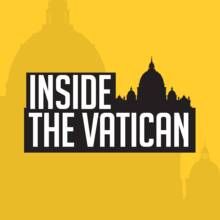When Benedict XVI resigned as pope, he broke with 600 years of tradition and reshaped the papacy—possibly forever. As people live longer, it is likely future popes will be more willing to follow Benedict XVI’s example instead of remaining and dying in office.
But Benedict’s self-professed intention to be “hidden from the world” has hardly gone according to plan. A collection of controversies including Benedict’s 2019 letter attempting to explain the sexual abuse crisis in the church, the sudden removal of his name from a book that Cardinal Robert Sarah claimed to have co-written with him, and his recent, problematic contribution to church abuse investigators in Germany, have raised questions about future emeritus popes and who controls the messages issued in their names.
Outside the Vatican, a small but vocal movement—including the former deputy prime minister of Italy, Matteo Salvini—continues to claim Benedict is still “my pope” and, in so doing, set him up, against his will, as a parallel authority to Pope Francis.
It is likely Benedict resigned, in part, to avoid being subjected to the sort of manipulation and power-grabbing that Pope John Paul II faced in his final years as leader of the worldwide Catholic Church. But in the nine years since his resignation, Benedict’s legacy and the questions raised about his aptitude to govern are no less contested.
On this deep dive episode of “Inside the Vatican,” host Colleen Dulle talks with Gerard O’Connell, America’s veteran Vatican correspondent; Christopher Lamb, author of The Outsider: Pope Francis and the Battle to Reform the Church; and Christopher Bellitto, a church historian at Kean University, in Union, N.J., to peel back the layers of papal politics, precedents and history. Together, they examine the title of pope emeritus—and what might need to change in the future to protect popes who retire from the opportunism and scandal we have witnessed in the nine years since the retirement of Benedict XVI.
Links from the show:
Austen Ivereigh: Pope Benedict’s letter on sex abuse is not an attack on Francis (or Vatican II)
Editorial: Discerning when and how a pope emeritus should speak
More from our guests:
The Election of Pope Francis: An Inside Account of the Conclave That Changed History by Gerard O’Connell
The Outsider: Pope Francis and His Battle to Reform the Catholic Church by Christopher Lamb



